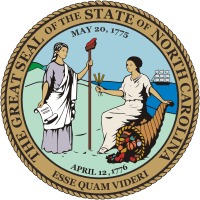Legislative Update from Rep. Frank Iler — November 8, 2021
Last week at the North Carolina General Assembly warmed up considerably, unlike the chilly weather in Raleigh. Bills for the new district maps for the N.C. House and Senate and for the U.S. Congress were finalized, and another important bill for our small businesses passed. Another bill on limiting mandates was vetoed by the Governor.
After two months of public input and three weeks of public map drawing, the new district maps were finalized for the N.C. House, N.C. Senate, and U.S. Congress. House Bill 976, Senate Bill 739, and Senate Bill 740 all passed the House and Senate during the week on a strict party line vote, all Republicans voting for them and all Democrats voting against. All approved maps were drawn without using electoral trend data or racial data. The Constitution requires the redrawing of districts after every national census, and the Governor does not have veto authority over district maps. North Carolina gained a 14th Congressional district based on the growth in the census numbers.
Our Brunswick County districts had to change slightly due to our growth outpacing the state growth. District 17, which I represent, had to give up 8000 population, so the precincts of Bolivia and Boiling Spring Lakes will move to District 19, represented by Rep. Charlie Miller. The changes are effective on January 1, 2023, but we have to run in the next election in them in 2022. District 19 had to give up three precincts in New Hanover County in downtown Wilmington.
Another important bill for our local businesses, Senate Bill 311, freezes the Unemployment Insurance rate paid by these businesses at 1.9%, NOT rising to 2.4% per formula. While the pandemic required heavy payments in unemployment, the fund is still very solvent with a $2.9 billion balance.
Big news last week was the veto of House Bill 264 – Emergency Powers Accountability Act. The bill would have required the Governor to confer with the Council of State after seven days of an emergency declaration, and with the legislature within 45 days. The Council of State officers are also elected statewide and are members of both parties.
This veto was not unexpected. Some of the other vetoes follow this pattern. His recent vetoes include House Bill 360 – Prevent Collusive Settlements by the Attorney General, House Bill 805 – Prevent Rioting and Civil Disorder, and House Bill 324 – Ensuring Dignity & Nondiscrimination/Schools. The number of vetoes has added up to more than all the other Governors in N.C. history combined.
People often ask why we can’t just override the vetoes. The answer is that a three-fifths majority is required to override a veto. If all the Governor’s party members vote against the override, then there are not enough votes to successfully accomplish it. There are 69 members of the majority party in the House and 28 members in the Senate. With 120 members in the House, it requires 72 to override, and with 50 members in the Senate it requires 30. The math is not there, unless the numbers change in the next election. (This is intended to be informational only.)
This week of November 8th is expected to be slow, but the week of the 15th it is anticipated we will finally have a consensus budget on which to vote. After over 4 months, we certainly hope so.

